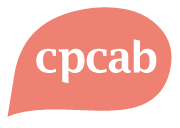What Does It Take to Become a Therapeutic Counsellor?
So, you're thinking about becoming a therapeutic counsellor? First of all—amazing. It’s a deeply rewarding profession that can change lives, including your own. But you might be wondering, “What does it actually take to get there?” At Clarity Thinking Learning Hub, we guide students every step of the way through the CPCAB counselling training pathway, and in this article, we’ll break down exactly what it involves.
1. The Right Motivation
Therapeutic counselling isn’t just about having a good listening ear—it’s about being truly present with others, supporting them through difficult times, and helping them find their own way forward. If you're someone who cares deeply about people, is curious about human nature, and wants to make a positive difference, you're already on the right track.
2. A Structured Training Journey
To become a qualified therapeutic counsellor, you’ll follow a structured, progressive training pathway. CPCAB (Counselling & Psychotherapy Central Awarding Body) is one of the UK’s leading awarding organisations for counselling training, and their qualifications are widely respected in the field.
Here’s how the typical path looks:
- Level 2 Certificate in Counselling Skills
Your starting point. Learn foundational skills like active listening, empathy, and boundaries. Ideal for personal development or dipping your toe in. - Level 3 Certificate in Counselling Studies
Builds on Level 2. You’ll dive deeper into counselling theory, self-awareness, and ethical practice. A must for moving on to practitioner-level training. - Level 4 Diploma in Therapeutic Counselling
This is where you become a trainee counsellor, start your supervised placement, and gain hands-on experience with real clients. On completion, you can register with a professional body and work as a qualified counsellor.
Each stage takes time, commitment, and emotional growth—but it’s absolutely worth it.
3. Time, Commitment & Self-Reflection
Training as a counsellor takes more than turning up to class. It involves:
- Reflective journaling and personal development
- Assignments and case studies
- Skills practice with peers
- Work on your own emotional awareness
- Personal therapy (usually during Level 4 and beyond)
- Placement hours (starting in Level 4)
Many of our students study part-time alongside jobs, parenting, or other responsibilities. With the right support and planning, it’s manageable—and incredibly fulfilling.
4. Ongoing Supervision & Ethical Practice
Therapeutic counselling is rooted in ethics, boundaries, and safe practice. You'll learn how to work professionally, hold space for clients without judgment, and recognise your limits. Supervision plays a key role throughout your training and professional life—no counsellor works in isolation.
5. A Lifelong Learning Mindset
Even after qualifying, learning never stops. Most counsellors go on to explore specialist areas, undertake CPD (continuing professional development), and deepen their practice throughout their careers.
Ready to Take the First Step?
If something inside you says, “This is what I’m meant to do,” then trust it.
At Clarity Thinking Learning Hub, we offer CPCAB-accredited courses taught by experienced tutors in a warm, supportive environment. Whether you're just starting out or ready to progress to Level 4, we're here to walk with you every step of the way.
Find out more about our upcoming courses. Your journey to becoming a therapeutic counsellor starts here.
What Does It Take to Become a Therapeutic Counsellor?
If you've ever felt called to help others, listen deeply, and make a real difference—counselling might be your path. But what does it actually take to become a qualified therapeutic counsellor?
Here’s the journey with CPCAB training at Clarity Thinking Learning Hub:
- Start with Level 2: Learn core counselling skills
- Move to Level 3: Explore theory, ethics, and self-awareness
- Level 4 Diploma: Begin working with real clients in placement
Along the way, you’ll grow in confidence, self-reflection, and professional skill—and yes, you can train around full-time work or other responsibilities.
Many of our students started just like you: curious, a little nervous, but ready to grow.
Message us to chat or find out about our next intake:
Your journey starts here.



